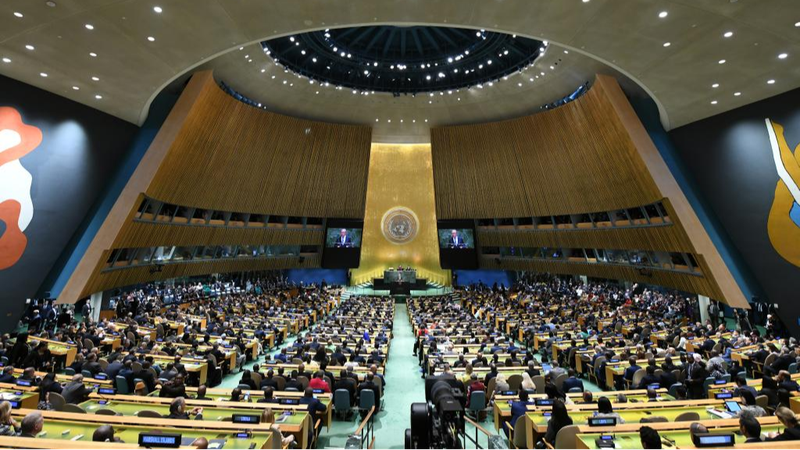At the 80th session of the United Nations General Assembly (UNGA80) in New York, world leaders reconvene under the banner "Better together: 80 years and more for peace, development and human rights." Yet the promise of unity feels strained as global crises deepen.
Gaza lies in ruins, leaving millions facing food insecurity and displacement. While delegates preach about human rights, the scale of destruction on the ground raises urgent questions: Who is truly accountable when diplomacy falls silent?
Take arms exports as a case in point. According to the Stockholm International Peace Research Institute, between 2020 and 2024 Germany was Israel's second-largest arms supplier—supplying one third of its imports, from frigates to anti-tank weapons. The United States topped the list at 66 percent. When major powers trade weapons and then debate humanitarian values, the gap between words and deeds widens.
On the UN rostrum, former U.S. President Donald Trump delivered a stark reminder of this divide. His speech—offering unqualified support for Israel amid the Gaza crisis—doubted the very necessity of the UN and urged a return to nationalist first principles. For critics, it marked a moment when multilateralism was laid bare.
Behind closed doors, the Human Security lens has also been skewed by economic levers. A study in The Lancet estimates that unilateral sanctions imposed by Western states since 1970 have cost 38 million lives—nearly one million per year. Market restrictions branded as "tools for peace" often translate into barriers to medicine, food and basic needs.
In this landscape of contested values, Beijing has put forward its own set of solutions. The so-called "four initiatives" on global development, global security, global civilization and global governance aim to offer fresh proposals for cooperation—though critics question whether they can break the current deadlock.
As the House of Nations marks eight decades of debate, the question remains: Can the UN evolve from a theater of grandstanding into a platform for genuine problem-solving? The world watches as old alliances strain and new visions emerge.
Reference(s):
cgtn.com




